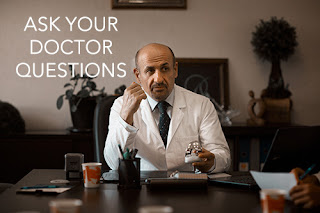10 Things to Prepare Before Total Knee Replacement Surgery
This article appears on drrashidganji.com/news
Going through the agony of knee pain caused by osteoarthritis and other complications is one of life's more difficult situations. Perhaps it can be seen as a both a relief and also daunting that you have chosen to have the total knee replacement surgery. Patients commonly talk amongst one another in the visiting room of orthopedic surgeon Dr. Rashid Ganji. Usually the conversation is the patients coming in for a consultation asking questions to the patients who recently had a knee replacement procedure done. Without a doubt, the most common question is some variation of, “Did it hurt?”.
Of course patients explain it does cause discomfort. It is no secret, even the doctor explains this as well. However, even before you proceed with the surgery, you should start thinking about things in advance to make your life much easier during this taxing time. Here is a compiled list of suggestions and tips to make post-surgery run a lot smoother:
1) Ask questions - This is one of the more important things. More often than not, patients come in and forget what they wanted to ask. Write down in an app or physically write your questions down. Most common questions are about how the duration of things related to the surgery last such as the duration of rehab, surgery itself, anesthesia and full recovery time. We recommend noting the answers too. So that same notepad or app you used to write down the questions, write the answers too. You can also do your own research online, and ask the doctor if those things apply to you.
2) Exercise – If you live a sedentary lifestyle then you want to start off slow. The better shape you are in, the faster and better your recovery time will be. After all exercise will only benefit you if done correctly. Since we are all different, ask your doctor which exercises are best for you.
3) Cut out the bad habits - Smoking is a tough habit to break for habitual smokers. Some doctors will even refuse to perform the surgery if this is the case. Smoking inhibits the healing process and prevents patients from healing as quickly. The chance of failure increases dramatically for heavy smokers. If you are overweight, try to shed a few pounds (kilos) with the doctor’s recommended exercise regimen. Obesity and smoking increases your chance of complications. Why risk it?
4) Learn about your physical therapy plan– When your doctor gives you information regarding your physical therapy, start doing them immediately. There are many benefits for performing these exercises such as what was mentioned previously, but also becoming familiar with what to do will help you be mentally prepared for what should be done.
5) Write down your medical information – Your emergency contact, insurance information, health conditions, and any medicines or supplements you're taking. Health care staff, physical therapy physicians and so on will be asking you the same questions quite often as it is part of their job. Jot it down so you can easily give it to staff. Hopefully no complications will occur, but if they do your information will be readily available.
6) Make sure support is in place – You are going to need help while recovering. If you live alone, get in touch with a relative or friend and ask them to stay with you. At the very least, let people know you are having a total knee replacement surgery and you will need assistance and if they could check up on you from time to time. If you are truly alone, or perhaps moved to a new location where you are new, you could search online for a caregiver to help bring you home to get situated. Ask them to check up on you from time to time.
7) Buy Supplies – You should do at least two weeks’ worth of shopping. Buy frozen pre-packaged food that you can just pop-in the microwave or just add water. The last thing you want to do the first few days after knee surgery is cook and have to clean up after.
9) Get a cold compression therapy wrap – Again, ask your doctor. Dr. Ganji recommends this to help alleviate pain. Reducing pain through non-medicinal methods is always preferred.
10) Get your home ready – Do a little house upkeeping, move things out of the way, generally just reduce the clutter. Consider getting a toilet seat raise (with arms installed) if you think you will have difficulty sitting down. Move things that you use daily in one location in the kitchen, your room, living room, etc. You’ll thank yourself later.
If you read through these 10 steps on how to prepare for partial or total knee replacement surgery than it’s fair to assume you, or someone you care about, will have the total knee arthroplasty in the future. Asking your physician about things cannot be stressed enough. We are all different, one thing that works for one person, may be detrimental to another. These steps are for informational purposes only.


Comments
Post a Comment